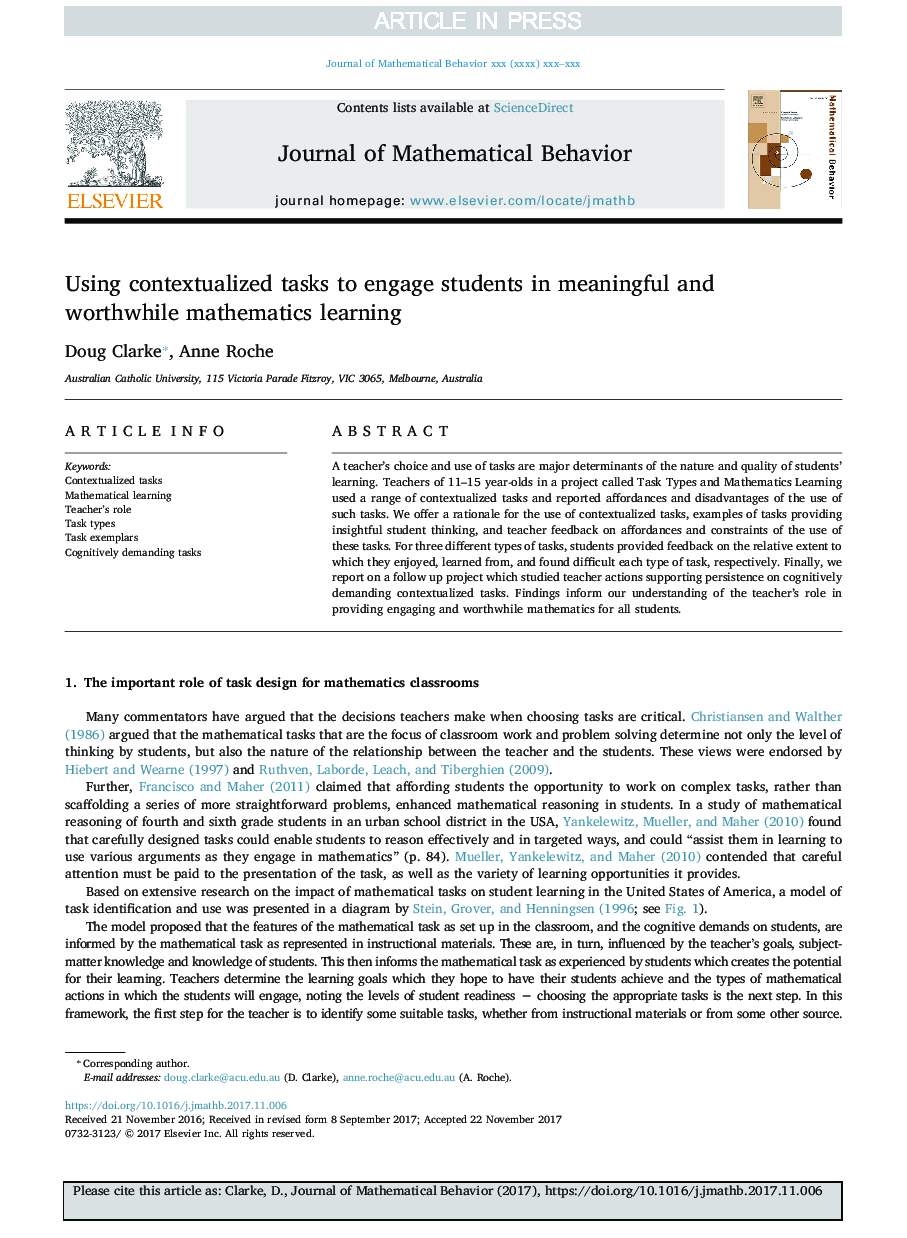| Article ID | Journal | Published Year | Pages | File Type |
|---|---|---|---|---|
| 8947334 | The Journal of Mathematical Behavior | 2018 | 14 Pages |
Abstract
A teacher's choice and use of tasks are major determinants of the nature and quality of students' learning. Teachers of 11-15 year-olds in a project called Task Types and Mathematics Learning used a range of contextualized tasks and reported affordances and disadvantages of the use of such tasks. We offer a rationale for the use of contextualized tasks, examples of tasks providing insightful student thinking, and teacher feedback on affordances and constraints of the use of these tasks. For three different types of tasks, students provided feedback on the relative extent to which they enjoyed, learned from, and found difficult each type of task, respectively. Finally, we report on a follow up project which studied teacher actions supporting persistence on cognitively demanding contextualized tasks. Findings inform our understanding of the teacher's role in providing engaging and worthwhile mathematics for all students.
Keywords
Related Topics
Physical Sciences and Engineering
Mathematics
Applied Mathematics
Authors
Doug Clarke, Anne Roche,
